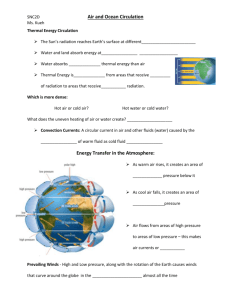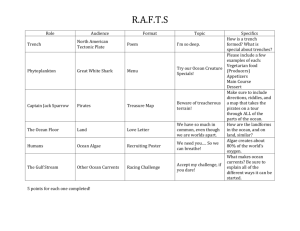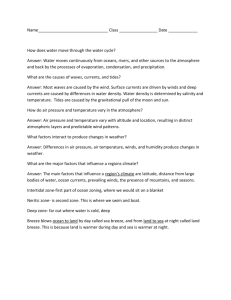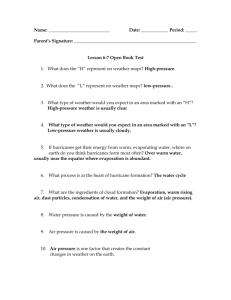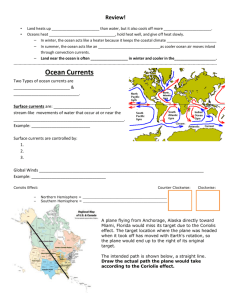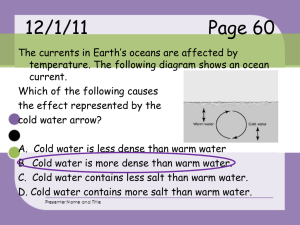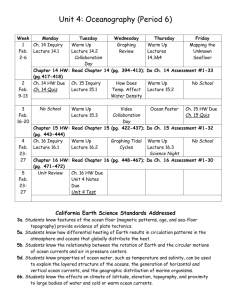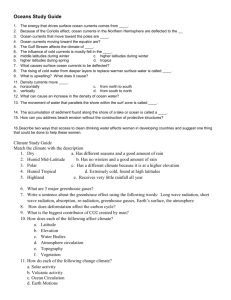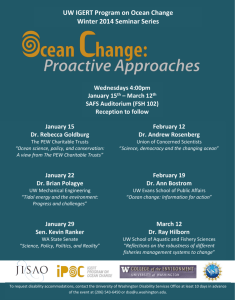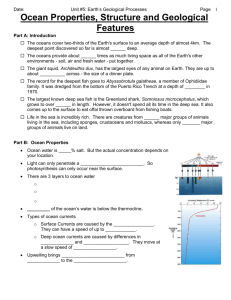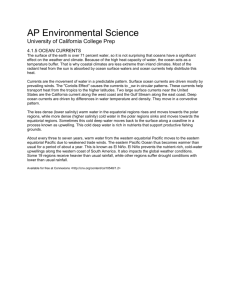Review Guide- Oceanography Test Name: Earth Science Questions
advertisement
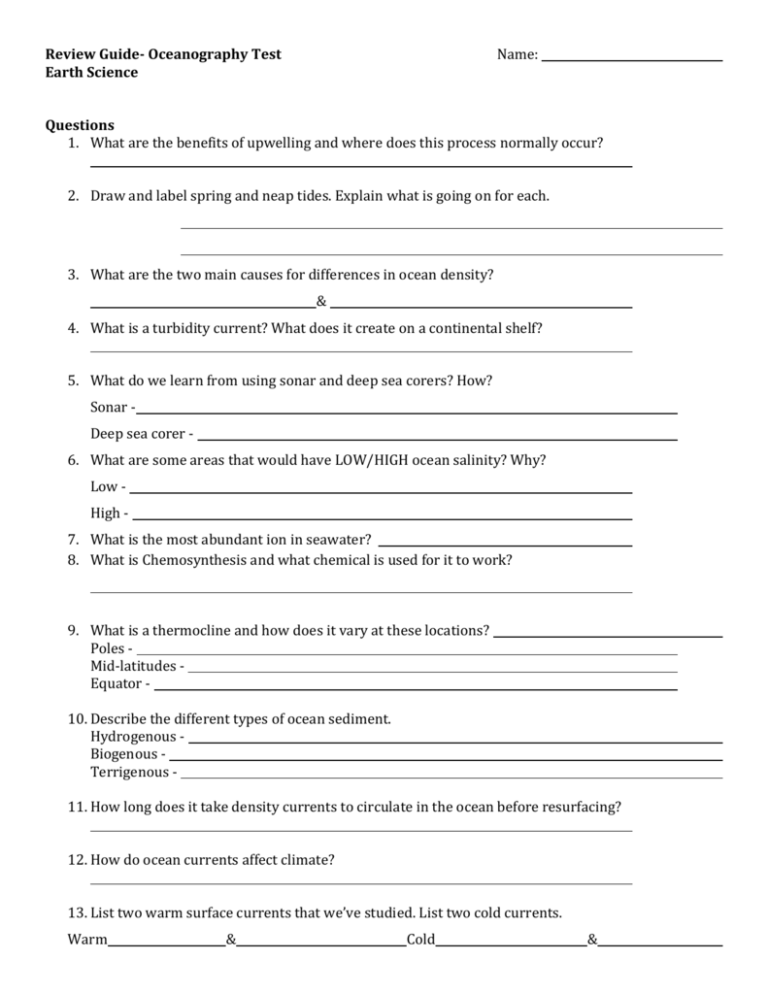
Review Guide- Oceanography Test Earth Science Name: Questions 1. What are the benefits of upwelling and where does this process normally occur? 2. Draw and label spring and neap tides. Explain what is going on for each. 3. What are the two main causes for differences in ocean density? & 4. What is a turbidity current? What does it create on a continental shelf? 5. What do we learn from using sonar and deep sea corers? How? Sonar Deep sea corer 6. What are some areas that would have LOW/HIGH ocean salinity? Why? Low High 7. What is the most abundant ion in seawater? 8. What is Chemosynthesis and what chemical is used for it to work? 9. What is a thermocline and how does it vary at these locations? Poles Mid-latitudes Equator 10. Describe the different types of ocean sediment. Hydrogenous Biogenous Terrigenous 11. How long does it take density currents to circulate in the ocean before resurfacing? 12. How do ocean currents affect climate? 13. List two warm surface currents that we’ve studied. List two cold currents. Warm & Cold & 14. What two global winds drive ocean currents? 15. What 2 things do we mine from the ocean in large quantities? & 16. How do we characterize an area’s climate? (2 things) & 17. What are the three things that control an area’s climate? a. b. c. 18. Give an example of a nekton. 19. Why are arctic regions cold? 20. What is wave refraction and why does it occur? 21. What are ocean waves caused by? 22. List three erosional shore features and depositional shore features. Erosional Depositional 23. What are the benefits of vegetation on sand dunes? 24. Why are phytoplankton important? 25. Which way do cold/warm currents flow and what side of continents are they usually found? Cold Warm 26. How do organisms that live at the bottom of the ocean get their energy? How does this compare to organisms that live near the surface in shallow water? Bottom Surface 27. How does salt enter and leave the ocean? a. Enter b. Leave 28. Compare and contrast deep sea trenches and mid-ocean ridges. 29. How much stronger is the moon compared to the sun when it comes to tides? 30. What type of climate would you expect a city or area that lives near the ocean to have? Why?
